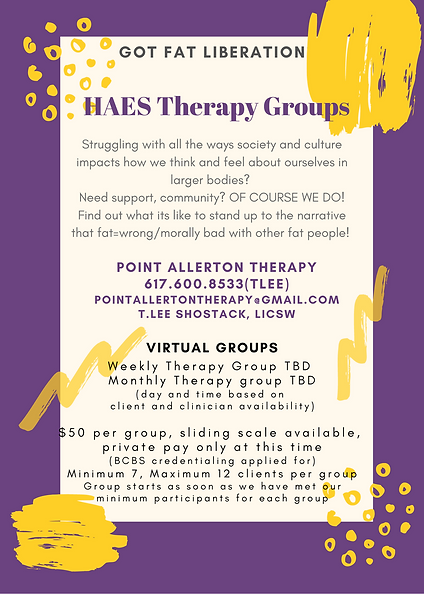
1
Why consider group therapy?
We live our lives in groups – including families, friends, co-workers, or intimate relationships. If we are isolated, work from home, or are in other ways disconnected, we can feel a longing to belong or be part of something.
When we go through emotional issues or pain, the relationships in our lives can become disconnected and then create even more emotional pain. Group therapy is an environment where we can develop our capacity to interact, connect, learn, work, play and be loving and caring.
The groups that Point Allerton Therapy offers always include the possibility to work on developing these skills.
2
What does group therapy offer?
Groups offer people an opportunity to work as a team and to learn skills that help to live life more fully. Groups can create an environment to develop our abilities to connect, interact, learn to listen - where people can develop and grow into who they can become.
Each of our groups focus on a specific issue but they all include these fundamental things.
Point Allerton Therapy uses approaches to human development and social change that relate to people of all ages and life circumstances as social performers and creators of their lives.
The practical question of how human beings learn and develop and grow emotionally is fundamental to why group is so helpful for people; that its not an individual thing but a social-cultural activity, is why group is so important. When people experience the social nature of life, and the power of collective creative activity, the emotional pain of life is significantly reduced.
3
How does group therapy work?
As the group works on issues and supports people, the individual grows. We come away with a deeper awareness of self and others, who we are in relationship to others, what our strengths and challenges are. There are opportunities to try out new emotional responses, learn to see from multiple perspectives, create new ways to communicate and be close to others, and find ways to deal productively with intense emotions.
It’s a place to develop emotional strengths and improve skills to build healthy relationships. Its possible to learn to be leaders in creating the very environment we need to grow and develop, and to actively build supportive environments in our lives.
Many people who have experienced our group therapy talk about it as having had a profound impact on their emotional pain, making it possible to live richer and more fulfilling lives.
Current Groups

Queer Conspiracy
This group is being offered through Melanie Hood-Wilson and Associates - accepting new members. Will start when we have five participants!

Consultation Group
Consultation Group for other therapists who are engaged in inclusive justice and liberation based clinical work - currently running

Coping with American Politics Group
AKA Fighting Fascism is Hard
The harder things get, the more we need to connect with others


Past Groups

1
fat liberation therapy group
This group builds community, challenges the idea that the problems are located in us and not in systemic issues, creates an environment where the pain can be shared and lessened, everyone knows how fatphobic doctors are, and raises a fist in solidarity with other forms of radical acceptance.
This is an inclusive and affirming space.
We welcome you whether this is day one or day one thousand on your journey.
2
clinical supervision group
Inclusive justice based clinical work. Experience with multiple clinical arenas. non diagnostic non pathologizing, strengths based, trauma informed, community organizing and building
Specialties in social therapy, liberation and healing practices, and the expressive arts.
Led by clincians with over 50 years of collective experience with group, relationship, and individual therapy serving adults in private practice and community health
3
chronic health issues therapy group
Looking for new ways to frame your experience? Isolation, grief, doubt, fear, and gaslighting by the medical community are sadly common experiences for those with chronic health issues, especially for multiply marginalized or oppressed people - belonging, community, validation, connection, being valued, commonalities, resources, and caring are the antidote!
This is an inclusive and affirming space.
Therapy group led by clinician with lived expertise
4
Radical self care:
Learning to say no
Just because you are available to do something or can do something, does not mean that you ought to.
Do you WANT to do the thing? Who is it for? Do they do things for you? What joy, satisfaction, pleasure might it create? Are you always the person who does the thing? Are there other options? Do you always say yes? Do you feel bad if you say no? Do you ever say no?
Join us as we explore the importance of prioritizing ourselves and setting boundaries. Learn to move beyond dedicating yourself to the needs of others, people pleasing, and putting everyone before yourself.
This is an inclusive and affirming space.
Past Groups
Now available in
Massachusetts AND Vermont!




Older Groups












